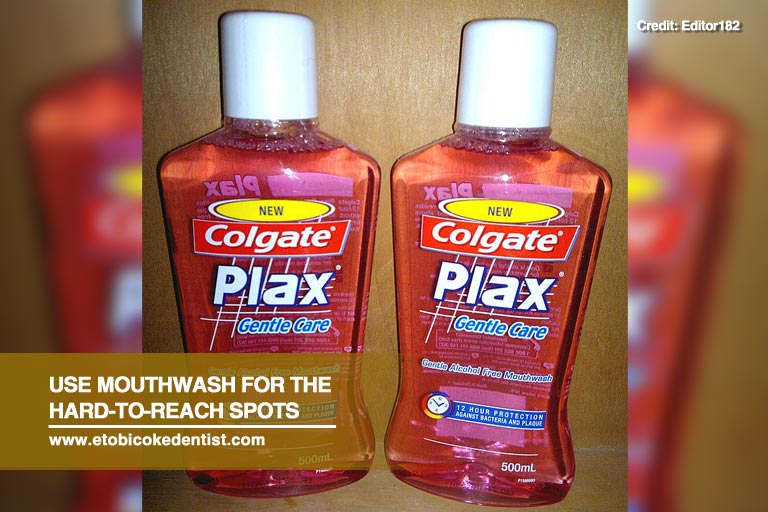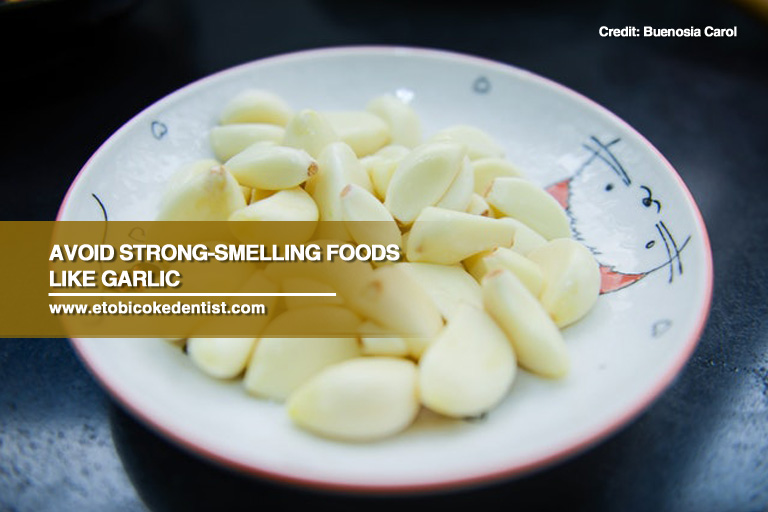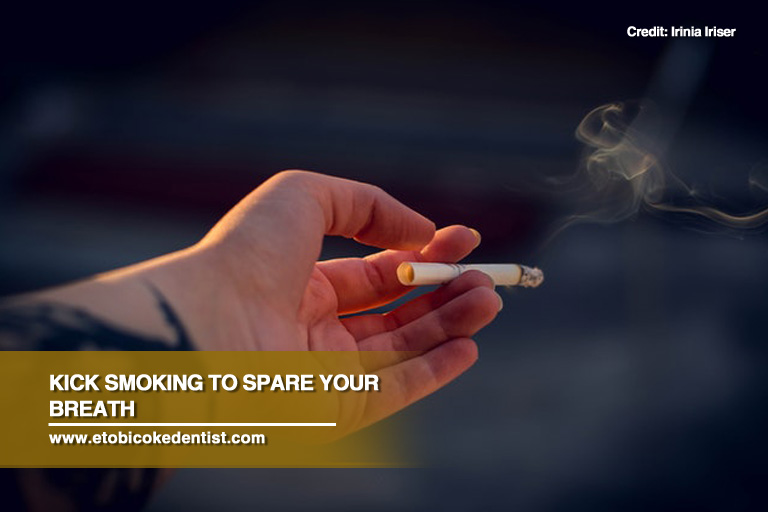Your family dentist will usually advise you to visit twice a year at the least. It’s a smart way to maintain your dental health and stay on top of any problems. When you combine regular checkups with brushing and flossing twice a day, you can give your teeth maximum protection from plaque and germs.
However, there are other reasons you may want to see the dentist regularly. One notable example is bad breath. It may not exactly be a dental emergency, but it can be socially awkward to deal with. Regular brushing and flossing can go some way to helping you keep the problem in check, but bad breath can have other causes that can require different solutions.
Whatever the reason, there are some ways you can fight bad breath and keep your breath smelling fresh all day. Follow these 8 simple tips to keep halitosis at bay in your daily life.
- 1. Remember to brush your tongue – Normally there’s plenty of bacteria in the mouth, including a type called anaerobic bacteria. Anaerobic bacteria tend to burrow into the deep spaces in your mouth (e.g. on your tongue) to avoid fresh air. Over time, these germs can give off byproducts that contribute to foul smells. Get in the habit of carefully brushing your tongue to remove the built-up bacteria and freshen your mouth.
For ideal results, consider buying a tongue scraper instead of scraping your tongue with your toothbrush. Tongue scrapers are harmless, and can even help remove more plaque than you otherwise could. Even better, some toothbrushes have built-in tongue cleaners so you can get to it right after brushing.

- 2. Rinse with mouthwash – After brushing and flossing, it can be a good idea to rinse your mouth with mouthwash. Keep an eye out for antibacterial mouthwash rather than a cosmetic one; this kind of mouthwash kills the bacteria responsible for bad breath. Specifically, look for an oxygenated mouthwash to counter the anaerobic bacteria setting up shop.
One advantage of mouthwash is that it can reach spots where toothbrushes and floss can’t reach. After using mouthwash, gargle some salt water at the back of the throat to be extra sure you’ve gotten rid of all the residue. - 3. Avoid dry mouth – Keeping your mouth hydrated is one effective strategy to reduce bad breath. Being dehydrated reduces saliva production; and saliva contributes to keeping your mouth clean and fresh. Saliva has antibacterial and antifungal properties, which can fight off the bacteria that contribute to foul odours. So when you’re wondering why morning breath works the way it does, now you know.
On another note, saliva also has an important function in breaking down food and lubricating your teeth to prevent food from getting stuck. Any remaining residue on the teeth can promote germ growth, making it vital you stay hydrated to fight it off.

- 4. Watch what you eat – What you eat affects how your breath smells (strong-smelling foods like garlic and onions are particular offenders). When food is digested, it gets absorbed into your bloodstream, and then exhaled by your lungs. Brushing can help remove some of the smells, but only to a point. Watch your food intake to avoid eating things that could outstay their welcome. Some other foods that cause bad breath to avoid include spicy food and low-carb diets.

- 5. Snack on crunchy foods – Freshening your breath can be as easy as switching up your diet. Look for some healthier options like fresh, crispy fruits and vegetables. These foods can help stimulate saliva flow, which can be extra good for you if you eat them as snacks. Another benefit to these snacks is that they can scrub off leftover food and germs stuck to your teeth. Think of them as nature’s toothbrushes, in a way.
One trick to fresh breath is maintaining a healthy gut. Probiotic foods (e.g. kimchi and yogurt) are a good way to balance your stomach. These foods stimulate the growth of good bacteria in the digestive tract. That leaves much less room for harmful bacteria, which can give off foul smells that travel back up into your mouth.

- 6. Chew some gum – Another great way of getting the body to produce more saliva is to chew some gum. The act of chewing stimulates saliva production, which can help get your mouth feeling fresher and wash away some of the bacteria in your mouth. For ideal results, chew some gum after meals; the gum can pick up some leftover food and limit the growth of plaque later on.
When choosing a gum, stick to sugar-free gum to avoid stimulating bacterial growth. Keep an eye out for xylitol-based gum for better results. Xylitol has antibacterial properties, which can give some extra help keeping the germs under control.
- 7. Stay away from tobacco products – Most people focus on tobacco’s effects on the lungs, but they also affect your oral health. Smoking can stain the teeth and leave the smell of smoke on the breath. Smoking can also damage the gums, which can further contribute to foul breath. For the sake of your teeth, gums, and breath, kick the habit if you haven’t already.
- 8. Always clean your dental appliances – When you wear dental appliances (e.g. dentures or retainers), part of your daily routine includes cleaning them. These appliances can trap leftover food particles you may have missed while brushing, along with any residual germs in the mouth. Take your appliances out every evening and clean them.
In the case of braces, you may have to place them in a solution to completely remove any residue. Check with your dentist to find the optimal way to clean them and eliminate any smells. When it comes to caring for your denture, it’s especially important to take care when cleaning to avoid scratches and keep their natural appearance.
The first step to maintaining a clean, healthy, and fresh-smelling mouth is brushing and flossing. These methods help remove plaque and food particles that could produce foul odours over time. However, for maximum protection, it’s a good idea to go the extra mile. Use these methods to help keep your mouth from bad smells and keep it clean in more ways than one. Getting your mouth extra clean can take some extra effort from you, but there’s no denying it pays off in the end. After all, a little more work sounds like a small price to pay for clean, fresh teeth.
When you need a caring, reliable dentist for the whole family, give Dr. Mark Rhody Dentistry a call. We understand that the patient comes first, so we endeavour to make sure every visit is a good one.
Call Dr. Mark’s office at (416) 231-4281 or visit our contact page to make an appointment; we’d love to hear from you!
